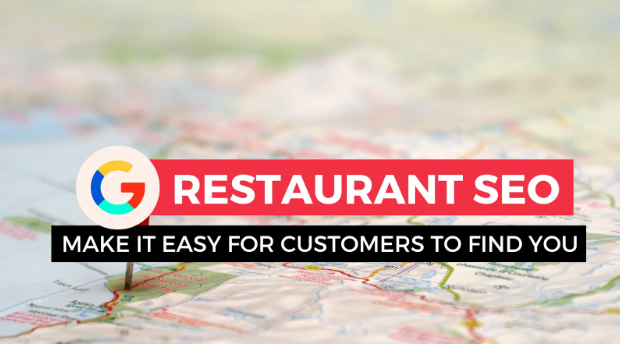Introduction
In the bustling world of digital marketing, search engine optimization (SEO) stands as the cornerstone for businesses aiming to thrive online. For restaurants, leveraging SEO strategies is advantageous and crucial for staying competitive in an increasingly crowded market.
In this guide, we delve into the intricate realm of Restaurant SEO, exploring effective tactics, emerging trends, and algorithms to propel your establishment to the forefront of search engine results.
Understanding the Importance of SEO for Restaurants
In today’s digital age, most diners turn to search engines like Google to discover new restaurants, browse menus, and make reservations. With millions of searches related to dining conducted daily, securing a prominent position in search engine results pages (SERPs) is paramount for attracting potential customers. Effective restaurant SEO ensures heightened visibility, increased website traffic, and more patrons walking through your doors.
Key Components of Restaurant SEO
1. Optimized Website Design and Structure
A well-designed website serves as the virtual storefront of your restaurant, offering visitors a glimpse into the dining experience you provide. Optimize your website with intuitive navigation, visually appealing imagery, and concise, keyword-rich content. Ensure mobile responsiveness to cater to the growing number of users browsing on smartphones and tablets.
2. Keyword Research and Implementation
Keyword research lies at the heart of any successful SEO strategy. Identify keywords and phrases that potential diners will likely use when searching for restaurants in your area. To enhance search engine visibility, include keywords strategically in your website content, including meta titles, descriptions, headers, and body text.
3. Local SEO Optimization
Local SEO holds immense significance for restaurants as most diners seek nearby dining options. Claim and optimize your Google My Business listing, ensuring accurate information such as address, phone number, business hours, and menu details. Encourage satisfied customers to leave positive reviews, as they can significantly influence your restaurant’s local search ranking.
4. High-Quality Content Creation
Compelling content engages website visitors and signals credibility and authority to search engines. Develop a content strategy that showcases your restaurant’s unique offerings, such as chef profiles, behind-the-scenes glimpses, culinary tips, and mouth-watering food photography. Regularly update your blog with relevant, informative content to keep diners and search engines returning for more.
5. Social Media Integration
Social media platforms are powerful tools for amplifying your restaurant’s online presence and connecting with your target audience. Incorporate social sharing buttons on your website to encourage visitors to share their dining experiences across various platforms. Engage actively on social media by posting enticing visuals, responding to customer inquiries, and participating in relevant conversations within the foodie community.
Trending Algorithms and Emerging SEO Trends
1. Google’s Core Web Vitals
In 2021, Google introduced Core Web Vitals as key ranking factors, focusing on create responsive website design such as loading speed, interactivity, and visual stability. Restaurants must prioritize optimizing their websites to meet these standards, ensuring swift loading times, smooth navigation, and seamless interactions across all devices.
2. Voice Search Optimization
With the rising popularity of voice-enabled devices like smartphones and smart speakers, voice search has emerged as a prominent trend in SEO. Restaurants can capitalize on this by optimizing their content for conversational queries and long-tail keywords. Consider incorporating FAQ sections on your website that address common questions diners might ask when using voice search.
3. Zero-Click Searches
Zero-click searches refer to search engine results displayed directly on the search engine results page, eliminating the need for users to click through to a website. Restaurants can optimize for zero-click searches by providing concise, informative content that answers users’ queries upfront. This could include details such as menu items, operating hours, contact information, and reviews.
Crafting Your Restaurant SEO Strategy
Armed with a deeper understanding of the intricacies of restaurant SEO and the latest trends shaping the digital landscape, it’s time to craft a comprehensive strategy tailored to your establishment’s unique needs. Here’s a step-by-step guide to help you get started:
- Conduct a Thorough Website Audit: Assess your current website for areas of improvement, including site speed, mobile-friendliness, and content relevance.
- Keyword Research and Mapping: Identify high-value keywords related to your restaurant’s cuisine, location, and unique selling points. Map these keywords to specific pages on your website to optimize content effectively.
- Optimize Google My Business Listing: Claim and verify your Google My Business listing, ensuring accuracy and completeness. Regularly update your listing with fresh content, such as photos, posts, and special offers.
- Create Compelling Content: Develop a content calendar that aligns with your restaurant’s brand voice and audience preferences. Incorporate a mix of blog posts, videos, and social media content to engage diners and enhance SEO.
- Build High-Quality Backlinks: Seek opportunities to earn backlinks from authoritative websites within the food and hospitality industry. Partner with local influencers, collaborate with food bloggers and participate in community events to boost your online reputation.
- Monitor and Analyze Performance: Utilize tools like Google Analytics and Google Search Console to track website traffic, keyword rankings, and user engagement metrics. Continuously refine your SEO strategy based on data-driven insights and emerging trends.
By implementing these strategies and staying abreast of evolving SEO algorithms and trends, your restaurant can position itself for long-term success in the competitive digital landscape. Remember, effective SEO is not a one-time endeavor but an ongoing commitment to providing value to both search engines and diners alike.
